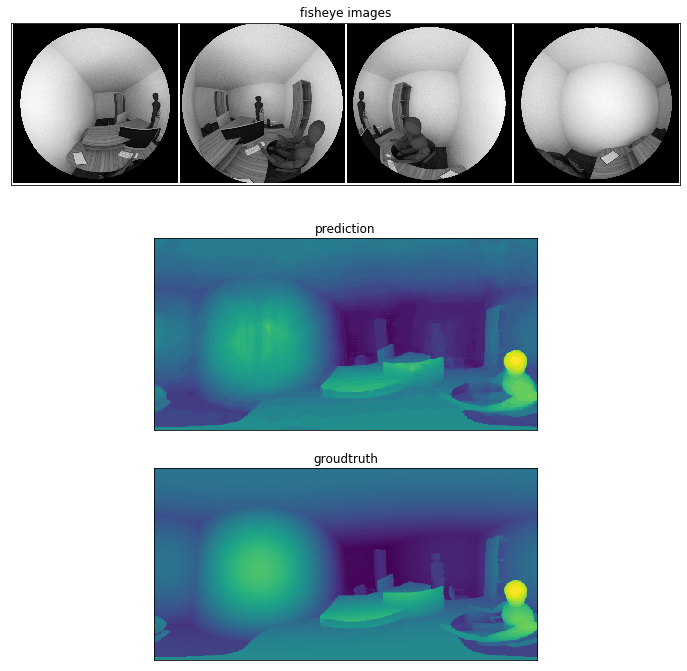An unofficial PyTorch implementation of ICCV 2019 paper "OmniMVS: End-to-End Learning for Omnidirectional Stereo Matching".
You need Python 3.6 or later for f-Strings.
Python libraries:
- PyTorch >= 1.3.1
- torchvision
- SciPy >= 1.4.0 (scipy.spatial.transform)
- OpenCV
- tensorboard
- tqdm
- Open3D >= 0.8 (only for visualization)
Please run the following command. On the first line, Python OcamCalib undistortion library is installed for undistortion of Davide Scaramuzza's OcamCalib camera model.
pip install git+git://github.com/matsuren/ocamcalib_undistort.git
git clone https://github.com/matsuren/omnimvs_pytorch.gitDownload OmniThings in Omnidirectional Stereo Dataset from here. After extraction, please put the dataset folder in the following places.
omnimvs_pytorch/
├── ...
└── datasets/
└── omnithings/
├── cam1/
├── cam2/
├── cam3/
├── cam4/
├── depth_train_640/
├── ocam1.txt
├── ...
Run with default parameter (input image size: 500x480, output depth size: 512x256, disparity: 64).
python train.py ./datasets/omnithingsThese default parameters are smaller than the ones reported in their paper due to GPU memory limitation.
You can change parameters by arguments (-h option for details).
A pre-trained model (ndisp=48) is available here.
Predictions on OmniHouse after training on OmniThings (ndips=48).


